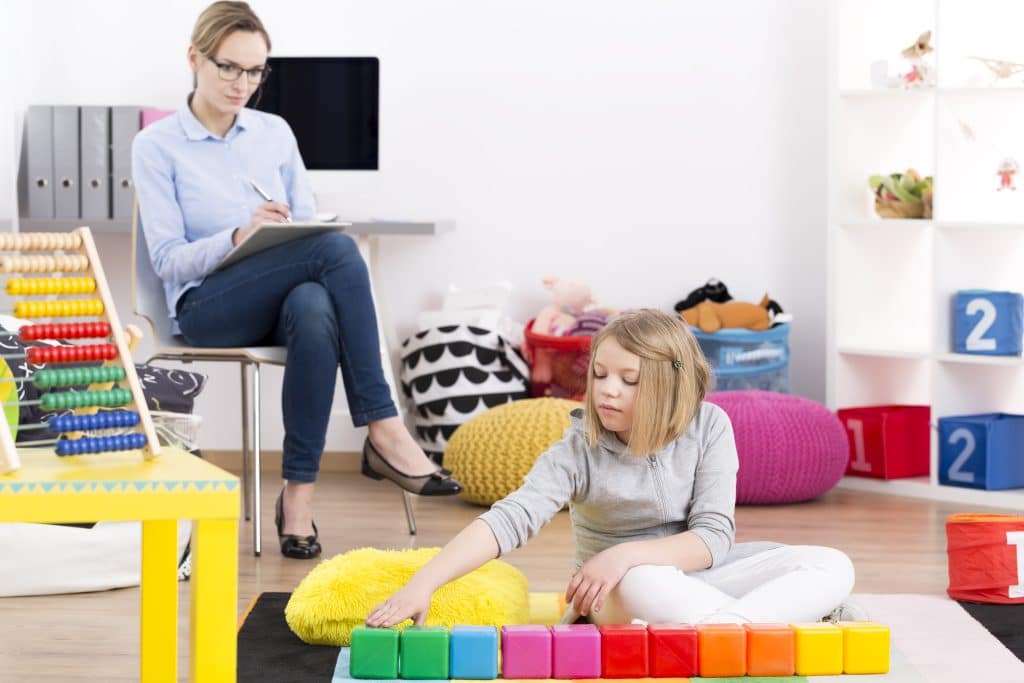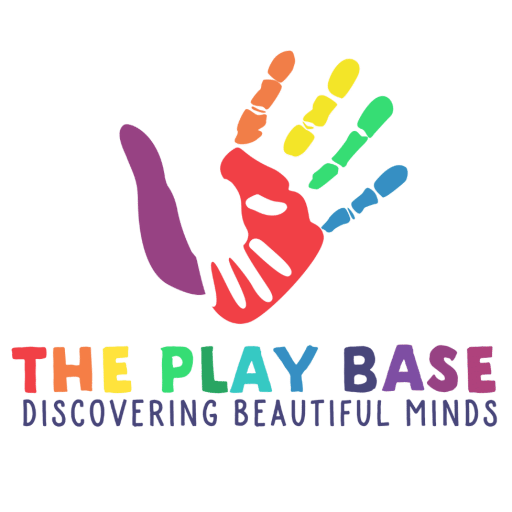Families looking into autism interventions often hear about ABA Therapy vs Play Therapy and wonder which option supports their child’s development best. Both approaches can help children learn and grow. But they work in different ways, use different strategies, and offer different types of support. This guide breaks down what parents need to know in a simple and clear way.
Frances Fishman, BCBA and founder of The Play Base, explains: “There is no one-size-fits-all therapy. The best intervention is the one that meets the child where they are and builds skills in a way that feels natural and supportive.”
ABA Therapy vs Play Therapy: What’s the Difference?
Both therapies help children learn, but they use different tools.
ABA therapy is a behavior-based intervention. It focuses on teaching new skills, breaking them into small steps, and rewarding positive behavior.
Play therapy is a play-based intervention. It uses toys, games, and pretend play to help children express emotions, build relationships, and learn social skills.
Simple way to remember the difference:
- ABA teaches skills using structure.
- Play therapy supports skills using imagination.
How Does ABA Therapy Compare to Play Therapy? | A Complete Parent Guide
Parents often look at therapy comparisons to choose the right support. Here is how each approach works in everyday sessions.
ABA therapy sessions may include:
- Breaking skills into small, manageable steps
- Using clear prompts and positive reinforcement
- Practicing communication, following routines, and building independence
- Tracking data to measure progress
Play therapy sessions may include:
- Pretend play with dolls, puppets, or toys
- Art or creative play
- Emotional expression through stories or role play
- Child-led playtime with gentle guidance
Frances shares: “Play is a natural part of learning. At The Play Base, we bring ABA principles into a play-based setting so children feel safe, engaged, and motivated.”
ABA Therapy vs Play Therapy for Autism | Which Approach Works Best?
Many families ask which therapy works best for autism. The answer depends on your child’s needs and your goals.
ABA therapy is helpful for:
- Building communication
- Reducing challenging behavior
- Improving daily living skills
- Following routines
- Learning step-by-step skills
Play therapy is helpful for:
- Expressing emotions
- Building relationships
- Reducing stress and anxiety
- Improving pretend play
- Strengthening social skills
Both can be used together as part of a strong developmental plan.
Comparing ABA and Play Therapy | Key Differences & Benefits
Here are the main differences parents often ask about.
ABA benefits:
- Clear structure
- Measurable goals
- Strong evidence base
- Effective for teaching daily skills
Play therapy benefits:
- Boosts creativity
- Supports emotional health
- Builds confidence
- Strengthens social connection
Frances notes: “The most effective programs mix structure with play. Play creates joy, and joy builds engagement. Engagement helps skills grow.”
ABA vs Play Therapy: Which Developmental Strategy Supports Skill Building?
ABA focuses heavily on skill-building through repetition and reinforcement. Play therapy focuses on emotional and social growth in a child-led way.
ABA is often best for:
- Communication skills
- Problem-solving
- School readiness
- Behavioral challenges
Play therapy is often best for:
- Confidence
- Emotional expression
- Social connection
- Imaginative thinking
At The Play Base, ABA and play come together to create a meaningful, child-centered approach.
Autism Interventions Explained | ABA Therapy vs Play Therapy Outcomes
When comparing outcomes, here are things to consider:
- What goals matter most to your family?
- Does your child need more emotional support, behavioral support, or both?
- Which environment helps your child feel comfortable?
ABA therapy tends to offer more structured progress. Play therapy tends to support emotional development. Together, they form a balanced intervention.
Play Therapy vs ABA Therapy | What Parents Need to Know Before Choosing
Ask the following questions when deciding on a therapy:
- Does my child respond well to structure?
- Do they enjoy play-based learning?
- Are there behaviors that need targeted support?
- What goals do I want my child to reach this year?
Frances explains: “When parents understand their child’s learning style, they can choose the therapy that supports long-term growth. Many children benefit from a blend.”
ABA or Play Therapy? | How Each Method Supports Development in Children
Both are developmental strategies. ABA supports learning through repetition, while play therapy supports learning through exploration. Each helps children grow in different but complementary ways.
Examples of how both can support development:
- ABA builds language; play therapy encourages conversation
- ABA builds patterns; play therapy builds imagination
- ABA builds routines; play therapy builds emotional strength
Behavioral vs Play-Based Interventions | ABA Therapy Compared to Play Therapy
Behavioral interventions like ABA help children learn expected behaviors. Play-based interventions help children learn emotional and social skills. Both support healthy development and can work beautifully together.
Therapy Comparisons for Autism | ABA vs Play Therapy Effectiveness
A combined approach is often most effective for many children with autism. At The Play Base, ABA strategies are woven into natural play so children learn through joy, curiosity, and connection.
Frances says it best: “Children learn best when they feel supported, safe, and playful. With the right strategy, every child can grow at their own pace with confidence.”
Ready to Support Your Child’s Development?
If you’re exploring ABA therapy services near me, need help choosing between ABA Therapy vs Play Therapy, or want a play therapy vs ABA assessment, The Play Base is here to guide you. Our autism intervention specialists are ready to help your family take the next step.
Contact us to book ABA therapy consultation, schedule autism evaluation, or learn about autism treatment options consultation today.









